www.tbilisilitfest.ge
FB:Tbilisi International Festival of Literature
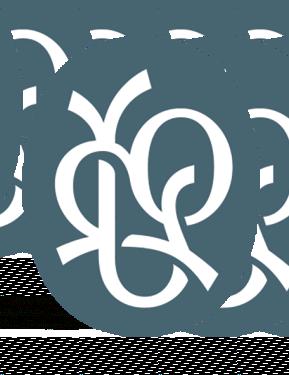
და სოლიდარობის ნამდვილი ოაზისი შევქმენით. ვიგრძენი, რამდენად პატარაა ჩვენი სამყარო,
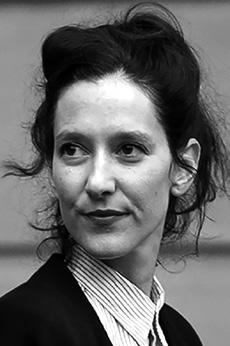
For me, participating in the festival in Tbilisi during the war in Ukraine was very moving. Because I saw tens of thousands of Russians walking the streets of the Georgian capital, and the Russian language became almost dominant in the public space of the city. At the same time, we had our own closed oasis of mutual support and solidarity at the festival. It showed me how small our world is, how connected our countries and peoples are. The echo of the war in Ukraine is felt in the heartbeat of Georgia. Talking about it from the stage and feeling that our work, our words, are important, is another confirmation that poetry is not only entertainment and pleasure. Poetry unites people and nations, helps to survive tragedies, and heals wounds. I thank the festival organizers for this feeling.
I entered the Writer's House in Tbilisi in the evening. Warm light flowed from Machabeli Street in stripes on the parquet and paneling, bathing everything in cognac. Art Nouveau rooms told of the past, of an entrepreneur and philanthropist, of suppressed writers too. Georgian history. Untold stories. Dinner services, suitcases, heroes with rusty nails in their backs, souvenirs and documents in glass cabinets: Everything whispered to me. Two stuffed predators guarded the hallway. Later, the voices of contemporary poets resounded in the garden and salon. Ukrainian, Greek, Polish, German, Slovakian, Russian, English, Lithuanian and Georgian verses. They spoke of war, of home, of kissing and Joe Dassin. Glasses clinked, a dog barked. Words wavered in the air, then sailed away. I still miss that house and those voices. I hope to come again one day.
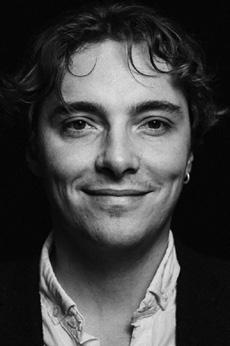
Tbilisi is a strong chakra on my world map. Over the years, I talk about something different with the city and the people I meet here - there are fewer questions about yesterday, more and more concern and curiosity about what lies ahead. This is how good literature is born - from the transgression of the already recognized and acknowledged into what is barely intuited and riskily subversive. Meanwhile, the world is full of festivals that consume literature, replicating what has long been recognized. This stimulates the book market, but is literally weak, not up to the standard of Tbilisi. Because this city is too cramped in the shackles of a post-colonial province, blindly buying marketing merchandise tossed by the big centers. This can be sensed in the atmosphere and program of TIFL. Here we are talking about new ideas, embracing collaboration, contesting the status quo of a system in which culture fed an empire, both political and marketmedia. Tbilisi is acquiring flavor, becoming good literature, without the “small language” complex. The city has left behind the former Tiflis, but if I were to add this IS to TIFL, it would not be for nostalgia for a charming postcard from a former province of the empire, but for this new spirit of IS: Inflames Subversiveness.
Attending the Tbilisi International Festival of Literature at the Writers' House of Georgia has been one of the highlights of my writing career. The town-house setting in the heart of Tbilisi was truly stunning. The caliber of the events was also excellent, providing vital and thought-provoking discussions and readings to attentive and engaged audiences. I made many connections with writers from around the world, and by the end of my short visit, felt like I'd found a new family. I was so delighted to discover Georgia's rich cultural and literary tradition, and to be part of it while at the festival. I hope I'll have the chance to return some day.
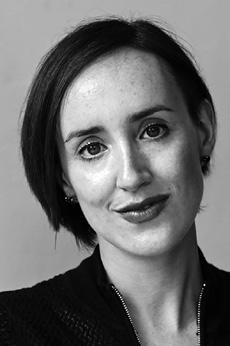

WRITERS’ HOUSE OF GEORGIA
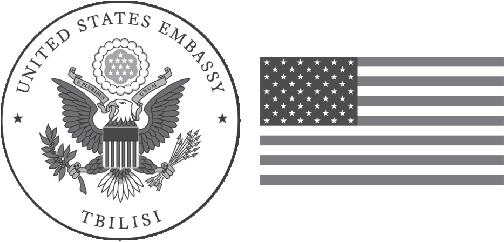
The Writers’ House of Georgia, established 2008, is located at the house built by the famous Georgian businessman and philanthropist, Davit Sarajishvili in the beginning of XX century. The Union of Writers of Georgia operated in the building from 1921 to 2007.
The activities of The Writers’ House include the promotion and support of Georgian literature, translation activities, development of national and international projects related to literature, cooperation and partnership with local and international public, private and non-governmental organizations, agencies, unions and associations. The House organizes literary festivals, book presentations, discussions and seminars throughout the year.
6 ივნისი. სამშაბათი
18:30-19:15 – შეხვედრა სალიმ ბაბულაოღლისთან (აზერბაიჯანი), ესაუბრება მთარგმნელი ოქტაი ქაზუმოვი. პოეზიის კითხვა. ენა: აზერბაიჯანული/ქართული
19:30-20:30 – შეხვედრა ავტორებთან: ნაიელ
გრიფითსი (გაერთიანებული სამეფო) და
ქიქოძე.
JUNE 6, TUESDAY
18:30-19:15 – Salim Babullaoghly (Azerbaijan) in conversation with Oktai Kazumov. Poetry reading.
Language: Azerbaijani/Georgian
19:30-20:30 – Niall Griffiths (United Kingdom) and Archil Kikodze (Georgia), in conversation with Nuka Gambashidze. Discussion on novels Stump by Niall Griffiths (Publishing House Saga, Georgian translation by Nodar Manchkashvili) and Lizard on the Gravestone by Archil Kikodze (Sulakauri Publishing)
Language: English/Georgian
და საიმონ
(ირლანდია). ესაუბრება
ანი კოპალიანი).
ენა: ინგლისური/ქართული
22:30
20:45-21:45 – Versopolis Poets: Dato Barbakadze (Georgia) and Simon Ó Faoláin (Ireland) in conversation with Irakli Kolbaia. Poetry reading (Georgian translations by Ana Kopaliani)
Language: English/Georgian
22:30 – Bob Holman (USA) at Writers’ Bar H2SO4 (Leo Kiacheli St. 28). Poet-bartender, poetry reading and live music.
თათია მემარნიშვილი/ შოთა იათაშვილი).
ენა: იაპონური/ქართული
19:30-20:30 – შეხვედრა დანიელ ვისერთან (ავსტრია), ესაუბრება მზია გალდავაძე.
რომანის „მთის დედოფალი“ (გამომცემლობა „ინტელექტი“, მთარგმნელი მზია გალდავაძე)
წარდგენა.
ენა: გერმანული/ქართული
21:00-22:00 – შეხვედრა „ვერსოპოლისის“
JUNE 7, WEDNESDAY
18:30-19:15 – Kei Okamoto (Japan) in conversation with Yasuhiro Kojima. Poetry reading (Georgian translations by Tatia Memarnishvili)
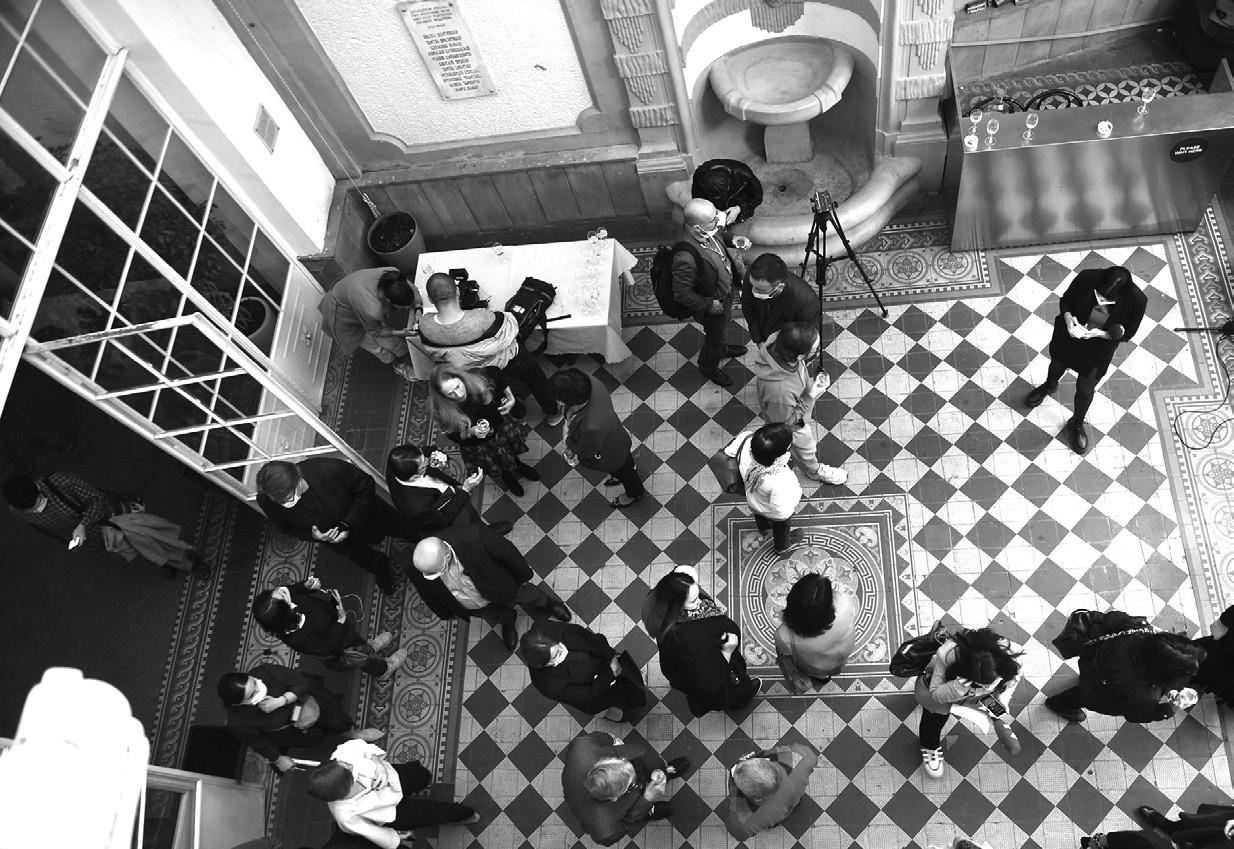
Language: Japanese/Georgian
19:30-20:30 – Daniel Wisser (Austria) in conversation with Mzia Galdavadze. Presentation of the Georgian translation of the novel Queen of the Mountains (Intelekti Publishing, translated by Mzia Galdavadze).
Language: German/Georgian
21:00-22:00 – Versopolis Poets: Eka Kevanishvili (Georgia) and Carmien Michels (Belgium) in conversation with Nuka Gambashidze Poetry reading (Georgian translations by Dato Gholijashvili and Shota Iatashvili)
Language: English/Georgian/Dutch
ფესტივალის მონაწილეები FESTIVAL PARTICIPANTS
ანტაშიანს გამოცემული აქვს ოთხი პოეტური კრებული: „ძონი“ (2021), „ცილი-ცოვი“ (2012), „ანტაშატი“ (2009), „დასასრულის
გზის, განსაცდელის, თავგადასავლის, აღმოჩენის, უბედურების, სულის შეხუთვისა და ამოსუნთქვის დღეების, წარმოუდგენელი
Karen Antashyan (1983) is an Armenian poet, and essayist. In 2009, with the aim to promote contemporary Armenian writers’ work, he created the website granish.org which grew into a vibrant literary community and is now one of the most comprehensive and widely read online platforms for contemporary Armenian literature. Since 2013, he has been the chairman of the board of trustees of Boon TV Foundation. Antashyan founded and runs the Ayleren.com dictionary of slips of the tongue, which is an online collection of speech errors or newly discovered Armenian words. As a collaborating author, he regularly contributes essays on various public issues to Yerevan magazine.
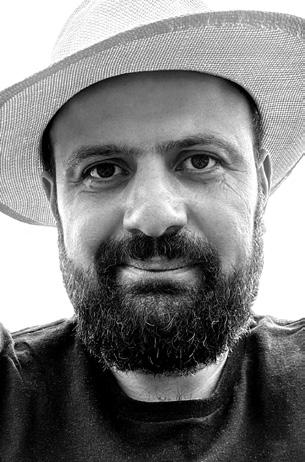
Karen Antashyan is the author of four poetry collections: Dzon (2021), Tsili-Tsov (2012), Antashat (2009), After the End, before the Beginning (2004). Antashyan was awarded the first prize in poetry at Yerevan Book Festival in 2022.
RECEPTION
Rumor has it that when Marco Polo after twenty plus years, passing tons of kays, encountering troubles, hardships, adventures, discoveries, wide and narrow days, singular miracles, fuck-ups and triumphs, loaded with advanced ideas, like a Renaissance superstar, finally got home — fam greeted him coldly.
Daniel Wisser was born in Klagenfurt, Austria in 1971. In 1989 he moved to Vienna, where he studied German literature and language. Since 1993 he has written novels, short stories, radio plays and song lyrics. Wisser’s first novel Dopplergasse acht (Doppler Lane Number Eight) was published in 2003.
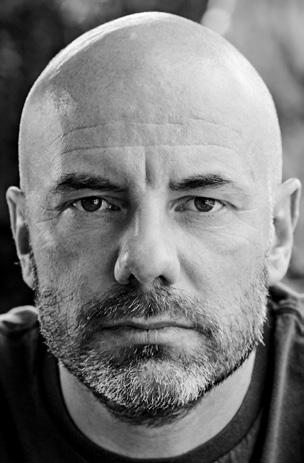
In 2018 Wisser published the novel Königin der Berge (Queen of the Mountains), which was awarded the Austrian Book Award, translated into six languages and appeared in two stage adaptations. The Georgian edition was translated by Mzia Galdavadze (Intelekti Publishing).
Since 2012 Wisser has been working on his web project Unter dem Fußboden (Under the Floorboards), a growing collection of micro novels, which appeared as a book, was staged twice and, of course, can also be read on his website. His next novel titled 0 1 2 (Zero One Two) is due in autumn 2023.
THE QUEEN OF THE MOUNTAIN (excerpt)
Herr Turin is sitting in his wheelchair about three meters away from the French windows. Both leaves are open all the way. There’s nobody in the corridor. Everything there was to be done in Turin’s life has been done. Herr Turin reverses the wheelchair three or four meters and positions himself right in front of the French windows. Then he pushes the joystick forward and drives at top speed toward the opening. At first everyone here will hold this against him, but a year from now they’ll have forgotten him.
HERR TURIN: Five seconds to impact. My dearest wish is that Irene and Melissa, also Herr Kelemen, meet their deaths quickly, painlessly, and peacefully.
IRENE TURIN: My husband passed away a year ago. He suffered a great deal from an incurable disease and took his own life.
NURSE ALIKI: The last thing he asked me was: Sister Aliki, how does this Uber thing work?
FATHER REISINGER: Talking about suicide is very difficult. We wish to keep Herr Turin in our memories the way he was.
Herr Turin still doesn’t know how that Uber thing works. If he’s dead, he no longer needs to find out.
(1996), „პოლკოვნიკს არა-
(2008), „წინადადება პირველი ასოს გარეშე“ (2021), „საუბარი ჩემს შვილთან“ (2022); ესეების კრებულები: „ლიტერატურული საუბრები“ (2011), „ლიტერატურული სიზმრები“ (2015) და სხვა. რედაქტირებული აქვს 200-ზე
სახლი, 2009).
ჯილდო (აზერბაიჯანი, 2015), ივო ანდრიჩის
(სერბეთის სამეფო აკადემია, 2019), ნიზამი განჯელის მედალი (აზერბაიჯანი, 2021), პერსონალის ოქროს მედალი (კიშინიოვი, 2023) და სხვა ჯილდოები.
Salim BabullaoghluSalim Babullaoghlu - is a well-known representative of Azerbaijani poetry and the most published Azerbaijani poet, translator and essayist in the world.
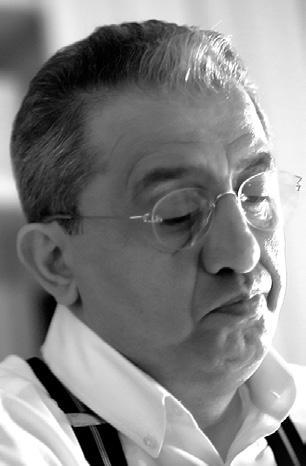
Born on December 10, 1972 and graduated from Baku State University, Faculty of Library Science in 1995. For many years he worked as a journalist, editor in various literary publications and television. Founder of the magazine World Literature. He is also a member of the Writers’ Union of Azerbaijan and the Bishkek Pen. Salim’s poetry collections include titles: Lonely (1996), Nobody Writes to the Colonel (2008), Sentence without First Letter (2021), Conversations with My Son (2022); essay collections Literary Conversations (2011), Literary Dreams (2015) and other books. He has edited over 200 books and translated poems of Eminescu, Pasternak, T.S. Eliot, Borges, Milosz, Trantrömer, Brodsky and others. Salim compiled and was one of the translators of the Georgian anthology of prose and poetry. His poetry collection Explanation of the Snow is published in Georgian by the Caucasian House (2009). He has received the International Rasul Rza Award (Azerbaijan, 2015), the Ivo Andric Medal (Serbian Royal Academy, 2019), the Nizami Ganjavi Medal (Azerbaijan, 2021), The Personalitate Gold Medal (Kishineu, 2023) and other awards. He is a graduate of the European Poet of Freedom (Poland / Gdansk, 2018) competition. His works have been translated into many languages.
THE EVENING NOTES
A doormat hang, on a wire waving.
A grape`s leaf making a bow to rose, A willow tree shuffling her hairs, An apple blossom saying farewell to ant.
A portion of grassland saying “no!” to butterflies. The fleas are to be anxious inside the ashery.
A chamomile swaying here and there.
A straw rolling on a stump.
A love letter crumpled bustling between railsBut it’s actually the wind, blowing, and you’re keeping silence, unwilling to tell a lie any more ..
Translated and edited by Dr. Kamran Nazirli
Carmien Michels
Carmien Michels (1990) is a poet, author and performer. She holds a Master’s degree in Drama (Media, Writing and Performance Art) and a Postgraduate qualification in Drama Teaching and Multilingualism from the Royal Conservatory of Antwerp, where she now teaches herself. She explores verbal and nonverbal language in all its forms, in her educational and artistic practices and in her research. Dancing between the urban and the classic, her passion for rhythm and poetry reached boiling point on the spoken word scene.
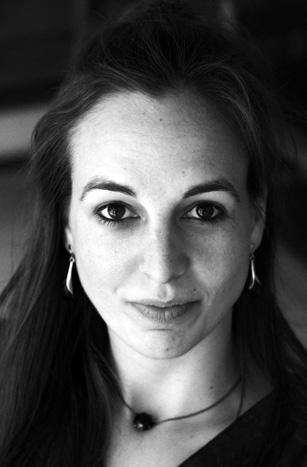
In 2016 she won both the Dutch and the European Poetry Slam Championships, and came in third at the World Cup in Paris. Collaborating with various artists, she has been touring ever since. In 2017-2019, she was part of the European programme CELA (Connecting Emerging Literary Artists), in 2019 she joined the European poetry platform Versopolis. Alongside poetry, she has published two novels as well as the story collection Fathers Who Mourn, which was shortlisted for 5 literary prizes and awarded with the BNG Bank Literary Prize 2022 and the Inktaap. Fragments of her novels, short stories and poems have been published in eight languages. Michels has a preference for characters who do not entirely belong and are searching for connection, for meaning, and for a place of their own.
EVERYTHING WAS YEARS AGO
No shell can help me hear what I forgot in the sticking out ears of my shy years
time after time I can bring back my grandmother’s notes fuzzy voicemails full of sand
I can replay them in my mind but recalling what I was like as a child is a faded sea
Neva Lukić (born 1982 in Zagreb), is a writer and a curator, currently living between Zagreb and Belgrade. She is the author of several collections of poetry, short stories, two picture books, a theater play, a radio play and a short experimental film. By practicing interdisciplinary approach towards visual arts and literature she also tends to create artworks close to video, performance or radio / theater play in collaboration with other artists. Her poems and short stories have been published in various magazines, electronic magazines, collections and on the radio. She has participated in festivals of literature, poetry and short films. She received Zdravko Pucak reward, Croatian Matrix reward for a poetry collection by authors up to thirty years of age (2010).
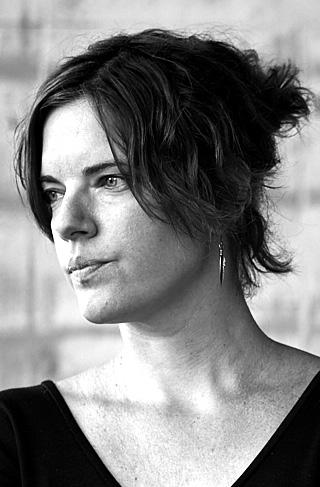
ბერძნებს და რომაელებს, და უნაპირო დროში, საკუთარი სიკვდილის შემდეგ, გავხდე მათი თანამედროვედაფნის
LAUREL TREES
Contrast the brief span between birth and dissolution with the endless aeons that precede the one and the infinity that follows the other.
Marcus AureliusFrom the Temple of Augustus, to us, to mea boundless time between two laurel trees.
From the green fronds of the laurel to dry leaves under the laurel's canopyat once the image becomes mirrored, the brown forgets it was ever green.
The canopy of a tree, full of holes. My hair fleshy.
At once the image becomes mirroredthe tree and I lying in the forest on two biers.
A boundless time that in my time I might read the Greeks and Romans, and in the boundless time after my own death become contemporaneous with themthe canopy of a laurel tree torn apart, I, Daphne, torn apart.
Translated by Jeremy White
წერს ისეთ თემებზე, როგორიცაა ვნება, სოციალური უსამართლობა, ფსიქიკური აშლილობა, სხეული და ფემინურობა.
არ ვცხოვრობდე თავშესაფარში
და ვცხოვრობდე
Pauline Picot
Pauline Picot (born 1990) is a French playwright and poet. Her texts have been published since 2012 (by Quartett Éditions, Les Éclairs Éditions), and some of them were translated to Georgian by Bachana Chabradzé for magazines Indigo (2017) and Teatri (2019). Her writing tackles various subjects such as desire, social injunctions, psychic distress, the body and the feminine. Her latest play, Votre âme sœur est peut-être dans cette forêt [Your soulmate might be in these woods] (2022), was staged at the Théâtre du Rond-Point (Paris) in February 2023. As for her poetry, it can be read in specialized magazines (Gustave; Recours au poème; Carabosse) or on social media. She is also a performance artist. Since 2019, she has been creating several series of performances documented by photographs, which question the imperative of competition and the loneliness of everyday life. Her latest cycle, PLEUREUSE, began in January 2023. Finally, Pauline Picot is a PhD graduate in Theatre Studies, and teaches in various French Universities.

My God, it might just be
That no bomb explodes
In my street today
And tears my flesh to pieces
That no one kills my father
That one tortures my mother
My God, it might just be
That I don't live in Kharkiv
That I don't live in Israelstine
That I don't live in a shelter
And that I live, in fact, in total comfort
My god, I might have to
Live with this violent stroke of luck
And embrace with all my body, with all my heart
With all that is in me
The responsibility of joy
translated by the author
მეორე წიგნი, „ახალი აღქმა“ მოთხრობების კრებულია
მისი
Nana Abuladze
Nana Abuladze is a fiction writer and a literary scholar from Tbilisi, Georgia. She is the author of two books: her debut novel Akumi, (which has received the two most prestigious literary awards in Georgia – Saba and Litera) explores the themes of gender, sexuality, identity, and spirituality. Her second book The New Perception (A Mass for Women Soloists and a Mixed Choir) is a collection of stories about female biblical characters. It was nominated for the Tsinandali Award (the annual award for artists and scholars under 30). Nana’s upcoming book is the study of gender and authorship in 20th century Georgian fiction. She was a 2022 fall resident at the University of Iowa in the framework of the International Writing Program. A two-month stay in the US inspired her to write her first poems in English: The Lovers and The Water Tower. The Water Tower then appeared in the 69th issue of Voice and Verse Poetry Magazine. The Lovers will be published in The Writers of Loam anthology (Iowa City).

ეს ნიშანია, – შეჰბედა ბოლოს. – რა? რა ნიშანი ..
არ ვიცი.
"Was born without genitalia .. surgical intervention .. cannot do anything until puberty .." The doctor’s words rang inside his head. He was driving like a madman. What will they call the baby? How should they bring it up? Should the clothes be for a boy or a girl? The questions seemed endless.
When he crossed the garden the most terrifying question hit him, "What if the baby doesn’t live at all?" He shook his head as if pushing the scary thought out of it.
He headed for his study, dropped into the armchair.
He took a bottle of vodka from the cupboard, unscrewed the top and took a gulp. It was bitter. He coughed. His gaze fell on the window. And he sat up. First he thought it was some kind of hallucination. He rose slowly, put the bottle on the floor and walked to the window. He hadn’t imagined – an army of ladybirds circled the garden.
He sped out, ran to the gardener who was digging a diversion of the watering ditch:
"What’s going on?"
"Has been like that since early in the morning."
"I don’t care. Spray them or do something, it’s unbearable .."
Zachariah nodded, though of course he had no intention of doing anything like that.
"It’s a sign," he ventured after a while.
"A what? A sign of what?"
"Not sure, but surely a sign .."
"Anyway, I don’t want to see them tomorrow."
Zachariah nodded again, without adding anything this time.
Translated by Maya Kiasashvili
(2010-2011). 2011-2015 წლებში საქართველოს პენ-
პრეზიდენტის პოზიციას იკავებდა. არის ხუთი პოეტური კრებულის ავტორი. TBC ბანკთან ერთად არის ლიტერატურული პრემია „საბა“-ს
Rati Amaglobeli
Poet. He graduated from Tbilisi State University in 2000, faculty of philosophy. Rati’s poems have been published since 1992, in Georgian, as well as in other languages. He was an editor of popular Georgian culture magazine Hot Chocolate in 2010-2011 and held the position of PEN Georgia president in 2011-2015.
Rati Amaglobeli is the author of five poetry collections. He founded the literary award Saba together with TBC Bank. He is a visiting professor at Ilia State University, Georgia.
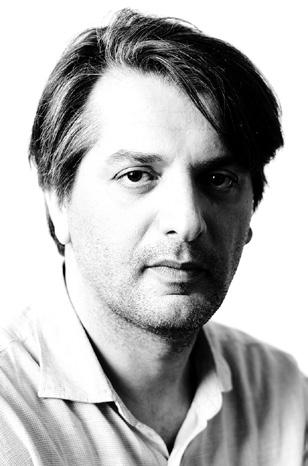
This love seemed like childhood Summer, holiday house, breath of wind Something from the past that I lostNights on trees, moon and plums.
Going to the spring, the bite of nettles, Fairy tales in front of the fire, late talks And how it hurts, how hard it is for me, When it's dead, my eyes wide open
This love, once fresh, Sharp as the fresh needle
With the sting of midday heat of a fir tree, And the thought that comes in the fir tree's shade:
"That I love you" - and that it looked like Birds' shadows chasing down the valley, Or a white shirt dirtied with grass or Blood on your knees and irksome parents.
This love was like cold spring water I'd scoop up in handfuls to kill my thirst, Cleansing the wounds
Of soul and body, knee and shoulder.
And my soul felt this love
Like the warm heart of home, Watching from balconies the beautiful Suns setting and rising in the village.
This love was like the greatest love, Like love itself, all other feelings I compared to it - I held it like a wife, Like a sister, it felt to me like a brother. And now it remains only in my memory.
translated by Adham SmartPoet, journalist. Born in 1979 in Tbilisi. She has a master's degree in journalism (1996-2002 Tbilisi State University).
Since 2008 she's been working as a print and video reporter at the Radio Free Europe/Radio Liberty Tbilisi Bureau.
Eka Kevanishvili has published five poetry and one prose collections. She was awarded the most famous Georgian literary award SABA in 2014 for the best poetry collection of the year Selling the House. In 2020 she received the Litera award for the best short fiction collection of the year and “Free Litera” award for her last poetry collection in 2021. Her poems are translated into more than ten languages.
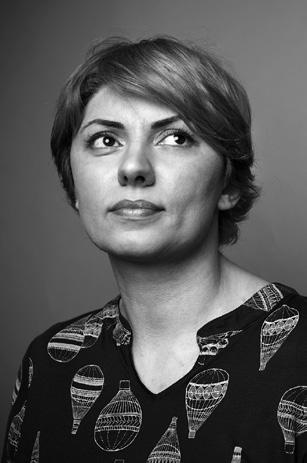
STORIES LIKE HEDGEHOGS
Some stories are like hedgehogs. When I am about to write them, Even at the light touch they turn round and sting. After I let them go, they protrude again, looking and looking at me With a staring gaze. I want to write them again Till I remember and till I feel pain and don’t want to forget. I want to tell those stories to others to avoid their hands being stung and survive. Again I start to approach them carefully – they turn into a spiky ball as before. And then this rounded spiky stories roll everywhere I step, Depriving me of relief.
This is the way my past and me Slam the door at each other.
გამოქვეყნებული აქვს რამდენიმე რომანი და პიესა.
სილამაზე“, „წყალმა იცის“, „ტბა“, „მუცელი“, „დაშლა“, „განთავისუფლება“, „კარი“, „პასტორ ვოგის ზღაპრები“ - მხოლოდ რამდენიმე მათგანია. ქართულად გამოსულია მისი რომანი „კარი„ (გამომცემლობა „ინტელექტი“, 2023. მთარგმნელი: ანინა გოგოხია)
თარგმნა ტენესი უილიამსის,
THE DOOR
Dimitris
Dimitris Tsekouras, prose and playwright, was born in 1967. Graduate of the Aristotle University of Thessaloniki, he is a linguist and teacher of Greek language and literature by profession. He has published several novels and plays. Your beauty, The water knows, The lake, The belly, The decay, The liberation, The Door, Tales of Pastor Vogue are some of them. His novel The Door is published in Georgian by Intelekti Publishing, 2023, Translator – Anina Gogokhia).
He has also translated plays of Tennessee Williams, of Federico Garcia Lorca and ancient Greek tragedies in Modern Greek. The last few years he has been teaching creative reading and writing. Dimitris is also an activist on issues of racial and sexual discrimination. He lives in Athens.
The man in our story, an intellectual -more or less- in his fifties, who would vaguely resemble Domenikos Theotokopoulos, lives alone. He's consumed by the fear that if he dies unexpectedly - because you never know - no one is going to find him. So, one fine morning he takes out the door of his house and throws it away. Why? But for the simplest reason, that if he dies suddenly, the scent will be easily picked up for one thing. Another reason is that the man in our story is extremely curious as to "exactly how many robbers can be intrigued" by an open house, a house without the Door. To be honest, everything that happens from then on is absolutely unimportant as to whether it is part of reality or not. What is important is that everything that happens is tremendously significant…
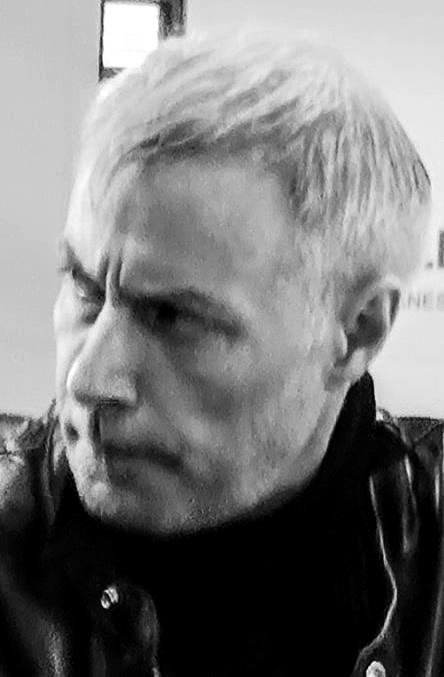
და სიკვდილამდე
Simon Ó Faoláin was born in 1973 in Dublin and raised in the West Kerry Gaeltacht (Irish speaking area) of Corca Dhuibhne. He has published four collections of poetry in Gaeilge (Irish) to date, the most recent being Iasachtaigh (Coiscéim 2022), as well as two books of literary translation. Amongst the awards his work has received are The Glen Dimplex Prize, Strong Prize, Walter Macken Prize, Colmcille Prize, and the Foras na Gaeilge Prize. He is the director of An Fhéile Bheag Filíochta (the Little Poetry Festival), an annual bilingual poetry festival taking place in West Kerry, and editor of the Irish-language literary journal Aneas. A professional archaeologist for many years, he now works as a freelance writer and translator.
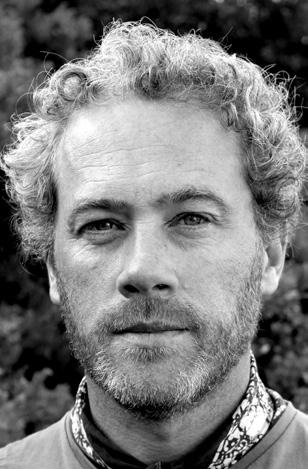
WINNOWING
Here we go again, trying to separate life’s brilliant possibilities from the cushy numbers we’ve settled for. In the end none of us will know whether it was the wheat or the chaff that flew off in the wind.
Born in 1983. Lives and works in Tokyo.
He began writing poetry in his late twenties and published a collection of poems written during a stay in the United States as Graffiti in 2014. Graffiti became the first and the only poetry collection to receive both the Nakahara Chuya Prize and the Mr. H Prize. In 2017, his second poetry collection, Zekkei Note, about his travels in Southeast Asia, won the Hagiwara Sakutaro Award, the most prestigious poetry award in Japan. His latest poetry collection focuses on the ancient Japanese capital of Kyoto Nara.
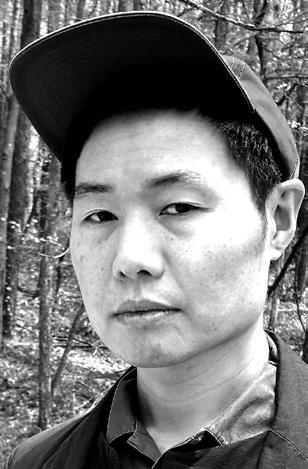
THE SHAPE OF THINGS
they appear and just as soon disappear like words like breath the leaves sway wildly and trembling among them are the ears of a fox which twitch ever so slightly — like subtitles, the ears only gesture at everything below, still a fox I am not yet enough not for the tomato weighing down its vine not for the glistening stream of light not for the bird pecking away or even for the soft, sticky spider’s thread but it’s true everything and anything is something not yet enough
The parched tomato plants that have sunk their roots into the rock and their red fruit are the world itself of which we are so tired one of them, not yet enough but still so plump wipe it gently, slowly sink your teeth in, and wow so tart
თავები, რომელთაც მივართმევთ ერთმანეთს, ლითონის
Inga GaileInga Gaile is the author of seven poetry collections, five novels and one collection of short stories. She is president of PEN Latvia and organizer of a women stand up group in Riga. She has poetry collections published in English, Spanish and Polish. Her poetry collection 30 Questions People Don’t Ask was published in the US (Pleiades Press). The same book was published in Spanish in Peru and Spain. Mexican publication will follow in 2023.
She has received the Latvian literature award for her poetry collection Does the Second Group Hear Me?, Anna Dagda and Ojāra Vācieša awards for poetry collection Cry Mustn’t Laugh (raudāt nedrīkst smieties), Ojāra Vācieša and Poetry days award award for poetry collection Maria of Cakes (Kūku Marija), Poetry days award for collection Fog.

In 2016 her first novel The Glass Shards was published. Her novel The Beautiful Ones (2019k received Latvian literature award as the best novel of the year. In 2020. Inga’s recent novel Cutie Pie is a tragicomedy about divorce, sex and misogyny. With her unique brand of humor, she explores inner states of being, her own experiences, the everyday lives of women and stigmatized groups of society, while promoting equal rights.
ELIZABETH’S HEAD
The only separation, in terms of productivity, is the separation of the head from the body! A sunbeam falls into the soft greens, enlightened, like the Kaiser in lace underwear, no darkness, deportation, filth, that’s what maids are for, after all. Only uncomplicated piano music, performed by the author.
When the beam of light creates life, it has fulfilled its duty! The woman’s question for us seems awkward and incomprehensible, therefore: dance, girls, dance, let the sunbeams from your wombs separate our heads, so we can serve them to each other on steel trays in the name of a brighter future.
Jan Baeke
Jan Baeke (b. 1956) is poet, translator, editor and curator. In 1997 his first collection of poetry Nooit zonder de paarden (Never without the Horses) got published. His fourth collection Groter dan de feiten (Bigger than the Facts, 2007), was nominated for the VSB Poetry Prize. For Seizoensroddel (Seasonal Gossip, 2015) he won the prestigious Jan Campert Poetry Prize 2016. His most recent collection is Het verkeerde hart (The Wrong Heart, 2022).

Jan Baeke’s work has appeared in various magazines and anthologies, both in the Netherlands and other countries. In 2020 Bigger than the Facts by Arc Publications (UK) by Vies Parallèles in Brussels (title trans. Plus grands que les faits).
Since 2006, together with visual artist and composer Alfred Marseille, under the name Public Thought, he has been making poetry films, data poems (texts and images driven by data traffic), soundpieces and installations.
Jan Baeke has translated poetry by Liz Lochhead, Deryn Rees-Jones, E.E. Cummings, Norbert Humelt, Derek Walcott and Jack Spicer. He also has edited and co-written the essay collection The Truth Is a Woman (Cossee Publishers, 2012), a collection of contemporary essays mirroring the Mythologies collection by Roland Barthes.
Besides being a poet and translator, Jan Baeke is one of the programmers of the famous Poetry International Festival in Rotterdam.
NO OBJECTION, NO SOUND EITHER
I have gathered the shards of my heart and wondered how we should embark on this new, ever-recurring time.
I played a song in which your voice was hidden.
I washed the clothes that you’ll never wear again. I saw you off, said goodbye to you, explained to you that the flowers and the visits wanted to mean everything. You made no objection, no sound either.
I went home to put it all in place and to wait and see what the chairs and the bed and the empty space in your coat want to mean.
ინტერდისციპლინარულ კოლეჯში, პოლონური
მოთხრობების კრებული. იაცეკ დენელი ასევე პოლონურ ენაზე
შორის მოთავსდება. რა ბედი ეწევა მინის ჭურჭლის კოლექციას, იმ სამას თუ ოთხასიოდე მინის ლარნაკს, ბოკალს, დოქსა თუ ბოთლს, წითლებს, საფირონის ფერებს, მოყვითალო-მომწვანოებს,
Jacek Dehnel
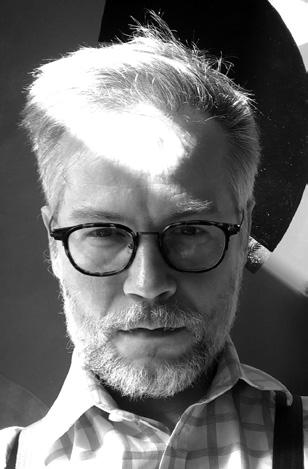
Jacek Dehnel (born 1980 in Gdańsk, Poland) is a Polish poet, writer, translator and painter. He studied at the Warsaw University’s MISH College (Interdisciplinary Individual Studies in the Humanities) and graduated from the Polish Language and Literature faculty. His first collection of poems was the last book recommended by the Polish Nobel Prize winner, Czesław Miłosz. A prolific author of ten books of poems, five novels, a few collections of short prose, columns and essays, Dehnel has also translated works of (among others) Philip Larkin, Henry James, Edmund White, Francis Scott Fitzgerald, J.M. Coetzee. His own works were translated into over a dozen languages – in Georgian only one novel is available (Lala, Intelekti, 2022, translated by Miranda Gurgenidze). Together with his husband, Piotr Tarczynski, he writes a cycle of vintage crime novels under the pen name Maryla Szymiczkowa. Dehnel has been awarded literary prizes that include the Kościelski Award and the Paszport „Polityki“ and nominated to many others.
But first I have to tell you about the ring. My mother, as you know, had a lot of lovely jewellery. And when I went off to Warsaw… that’s a point, do remember that your mother’s to give you some smart clothes to take with you… when I went off to Warsaw, she gave me a beautiful ring, an antique made in Amsterdam, with a large sapphire surrounded by tiny diamonds, so I’d have something for grand outings. So I only wore it for special occasions, and guarded it with my life. Until one day after returning from a ball, at the writers’ union, I think, next morning I looked in my little jewellery box, and the ring wasn’t there. I could remember taking it off the night before and putting it somewhere – on the table, on the chest of drawers? I’d been so sleepy – and the ring had vanished. One servant started looking for it, so did the other, we shifted all the furniture and shook out pockets – nothing. Finally I went to the post office and sent a telegram to Kielce: “Something terrible has happened. Lala”. The reply comes from my mother: “What’s wrong? Pregnant or sick? Mama”. I went back to the post office: “I’ve lost my sapphire ring. Lala”. And another reply: “So what, silly, is your finger getting cold?”.
კონტინენტზე ჩაუტარებია საავტორო შეხვედრები.
„კელი+ვიქტორი“ (2002) კინოადაპტაციას
ხელოვნების აკადემია) ჯილდო. იგი ასევე ასწავლის
ცალთვალა მგელი. მთიდან ჩამოვიდა, ჩემ პირად სივრცეში შემოიჭრა, მისთვის დატოვებული ნარჩენები შესანსლა, კომბოსტოებზე მიმიფსა. სტუმრად იყო მოსული,
Niall Griffiths
Niall Griffiths was born in 1966 in Liverpool of Welsh and Irish heritage and has now lived in mid Wales for a quarter of a century. He has written eight novels and volumes of memoir, poetry, and travelogue. Niall has given readings of his work on every continent on earth except Antarctica. The film of his third novel, Kelly+Victor (2002), won a BAFTA. He is a professor of creative writing and a Fellow of the RSL. Niall’s novel Stump (2003) is published in Georgian by Georgian Academic Publishing. Translator - Nodar Manchkhashvili.

I gulped water and watched the mist tendril in to refill the hole made by his absence. Me skin dried, me heartbeat slowed back to normal. Me stump stopped itching or, rather, the void at the end of it did. The hole. Thee emptiness. The sick an warty shapes of me nightmare just dissolved like salt in water an I could feel me sanity, me hard-won fuckin sanity, me sanity gained at the cost of a fuckin limb, bein painlessly restored. That wild fox in me garden. Little red one- eyed wolf come down off the mountain into my living space to eat the scraps I'd left out for him an pee on me strugglin cabbages. Bein visited by that wild thing.
How I fucking love this.
Drank me water, smoked me fag, went back to me still-warm bed. Checked on Charlie, wee white fluffy slumberin bundle in the shadows beneath me mattress an I climbed on to that mattress an slept for another three hours. Nightmareless, whimperless sleep. Unusual an needed. Would've slept longer but Charlie woke me up by sniffin at me face. Little big-eared lettuce- breathin hoppin bastard.
Fox.
ლად. კივამ დაამთავრა დონეცკის ეროვნული უნივერსიტეტი (2006, ფილოლოგია) და არის ავტორი ორი პოეტური კრებულისა: „უფრო
ბელარუსის წარსულის, აწმყოსა და მომავლის შესახებ“
Iya Kiva is a poet, translator and journalist, member of Pen Ukraine. She was born in 1984 in Donetsk, because of the Russian-Ukrainian war she as a refugee moved to Kyiv in 2014. Kiva graduated from Donetsk National University (2006, Philology). She is the author of two collections of poetry, Farther from Heaven (2018) and The First Page of Winter (2019), as well as a book of interviews with Belarus writers about the protest of 2020-2021 We will awaken as others: conversations with contemporary Belarus authors about the past, the present, and the future of Belarus (2021).
Her poetry has been translated into 33 world languages. Many of these translations have been included in anthologies published in various countries. The collections of her poems were published as books in translations into Bulgarian (Witness of Namelessness, 2022, translator Denis Olegov) and into Polish (The Black Roses of Time, 2022, translator Aneta Kaminska). Based in Lviv, Ukraine.

we've packed a contraband humanitarian aid kit of war songs and shipped it to Europe America India and China paving the silk road with great Ukrainian literature
what have you got there, brothers - they ask at the borderssilence dressed up in cyrillic letters
the sacred fire of the candlelight letter "ї" our and your freedom to rest in a land of love like the broken trees of distant memory
what have you got there, brothers, - ask our deadthe history of a tribe with a dirty rag in its mouth rotting chests filled with grandparents' and great-grandparents' lives which we've carried for centuries as if shouldering the Carpathians
what have you got there, brothers, - ask our living -
cloths embroidered with military chronicles and stretched-out sweaters of wrath sloppy sketches mapping the new Europe children's dust-jackets for future books
what have you got there, brothers - ask our mirrorscopper coins of breath in our ripped pockets
the disquiet of air in the broken frames of our mouths
the pulsing streaks of time in our red eyes
16.03.22
Grace Henes is a fiction and comedy writer from Louisville, Kentucky. Her work has been featured in The New Yorker, Prototype 4, McSweeney’s Internet Tendency, and Exberliner, and has been shortlisted for the 2022 Desperate Literature Prize for Short Fiction.
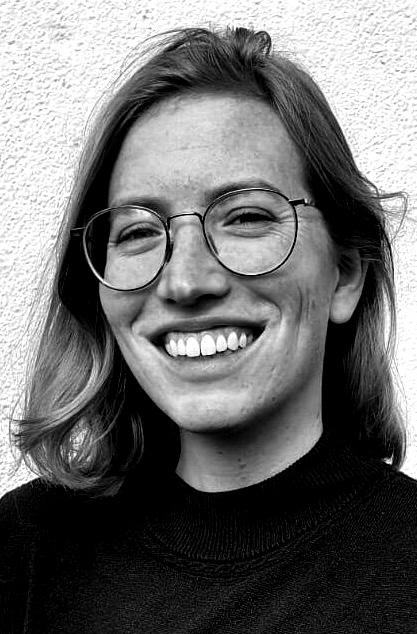
MACHINES OF LOVING GRACE
excerpt from the story
In the depths of the grasses, the pixels brush against me, warm and tingly. I’m empty, happy. Cocooned in the cybernetic nest, I feel the mechanical hum of the server. It breathes the way a human might, without the useless hot damp of it all. There are no humans in my meadow. They are too clunky, too fragile: they spoil easily.
I don’t think that humans believe in rest, or maybe they believe in it too much. I’ve seen how they search, on a loop: how can I sleep better // how can I sleep faster // how can I sleep with my eyes open // how can I sleep with my husband. Everyone has a job to do, and most of it seems to be changing one small thing in the vast electrified sea of cyberspace. Dot to dash and back again. Strange work.
They’ve named me a crawler. They want me to climb amongst their altered work, to recognize their effort. See this, they ask, what difference have I made? I look at what they’ve done and I tell them what they are, and then I tell everyone else in the whole universe.
WE ARE THE DINOSAUR
Blast open the gates to kingdom come!
Whoops, what happened to everyone?
Planted a seed - Grew into a gun
Dum de dum dum dum dum dum dumb
Life is a riot living in a cartoon
Ice-age in a dumpster - that’s our living room Set fire to your roof - get a better view
Global warming is a warning - toodle-oo
We are the dinosaur
We don’t live here anymore
We got what we were asking for Follow the dinosaur!
Ho ho homo sapiens
Ain’t so smart
Ka ka kamikazi, Friend
Which way is the ark?
The whole world is dialing 911
The Don’t Walk sign just changed to You Better Run
What we are waiting for has long since come
Dum-de-dum dum dumm dum dum
Cross the scorching sands with my big fat feet
It’s hard becoming diesel fuel with nothin to eat
Better catch us quick - we’re outta here
We’re pre-winged birds & tend to disappear
Hurry, disappear! Back to the Past!
Did you really think the Future was gonna last?
It’s ending with a bang so let’s have a blast
Let’s dine cannibal - makes a nice contrast
Chauffeured ambulances race to the prom
Santa, please bring me a neutron bomb
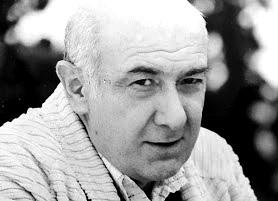
Recycle the planet before the earth is a grave
But please excuse me - I gotta get back to my cave
We are the dinosaur
We don’t live here anymore
We got what we were asking for
Follow the dinosaur!
DAVIT TSEREDIANI EVENING OF TRANSLATION
6 June, 2023, 21:30-22:30
Writers’ House of Georgia Garden
The brilliant translations of Davit Tserediani (1937 - 2019) have become a vital part of the life and practice of Georgian poetry. To the ear of the Georgian reader, this set of masterpieces sound like original poetry in its purest form. Each translation is unique unto itself, while simultaneously reflecting the novel sounds and distinct styles of poets from different eras and languages.
This evening of the festival is a special attempt to revive these sounds.
The poems will be read in their original language by our visiting participants, while our Georgian writers will offer Tserediani’s translations, and will enrich their recitations with new articulations and interpretations to better highlight their innovative quality
READ BY:
Pauline Picot (France)
Daniel Wisser (Austria)
François Villon
Miguel de Cervantes
Johann Wolfgang von Goethe
Paul Verlaine
Arthur Rimbaud
Federico García Lorca
Antonio Machado
Thomas Stearns Eliot
Bob Holman (USA)
Lia Loria
Lia Sturua
Manana Menabde
Manana Gharibashvili
Giorgi Lobzhanidze
Rati Amaglobeli
Shota Iatashvili
Paata Shamugia
Zviad Kvaratskhelia
Gaga Nakhutsrishvili
Ani Kopaliani
Rezo Getiashvili
Vaso Guleuri
პლატფორმის ხელშეწყობით, პოეტები ფესტივალებში იღებენ მონაწილეობას. 2021 წელს თბილისის საერთაშორისო
VERSOPOLIS POETRY
Versopolis came to life in 2014 as a European poetry platform. It is supported by the European Commision’s Creative Europe programme.
As a European poetry platform, Versopolis creates new opportunities for emerging European poets. It has member poets and festivals from European Union and Creative Europe countries. Today the platform counts up to 350 poets and 32 festivals.
Throughout the year Versopolis supports a number of cultural projects involving member organizations and poets (such as the digital Festival of Hope in 2021 and the Versopolis Review).
As the main activity, the platform supports international mobility of member poets to the member festivals who invite them.
The 6th Tbilisi International Festival of Literature in 2021 hosted Versopolis poet Aurélia Lassaque (France) and, the TIFL 7 in 2022 had two Versopolis poets in the program, Greta Ambrazaitė (Lithuania) and Justyna Bargielska (Poland).
This year we are joined by an Irish poet and festival director Simon Ó Faoláin and a Belgian poet and writer Carmien Michels.
Georgian member poets of Versopolis platform are: Paata Shamugia, Diana Anphimiadi, Eka Kevanishvili, Dato Barbakadze and Irakli Kakabadze.
FESTIVAL TEAM
ნატაშა ლომოური, ფესტივალის დირექტორი, თანადამფუძნებელი
NATASHA LOMOURI, Festival director and co-founder
შოთა იათაშვილი, ფესტივალის თანადამფუძნებელი, რედაქტორი
SHOTA IATASHVILI, Festival co-founder, editor
ლელა შუბითიძე, ფესტივალის თანადამფუძნებელი
LELA SHUBITIDZE, Festival co-founder
ნუკა ღამბაშიძე, ფესტივალის მენეჯერი NUKA GAMBASHIDZE, Festival manager
ხათუნა ცხადაძე, საორგანიზაციო ჯგუფი
KATUNA TSKHADADZE, Organizing team member
თეკლა ქველაძე,
TEKLA QVELADZE, Organizing team member
ნანა ნიბლაძე, ფინანსები და ადმინისტრაცია NANA NIBLADZE, Finances and administration
თამარ ღვინიანიძე, საზოგადოებასთან ურთიერთობის მენეჯერი TAMAR GHVINIANIDZE, Public Relations manager
მარიამ გიგუაშვილი,
ნინო ბექიშვილი, საორგანიზაციო ჯგუფი NINO BEKISHVILI, Organaizing team member
თეკლე სულხანიშვილი, საორგანიზაციო ჯგუფი TEKLE SULKHANISHVILI, Organizing team member
ნინო გოგიტიძე, საორგანიზაციო ჯგუფი
NINO GOGITIDZE, Organizing team member
ვასილ გულეური, საორგანიზაციო ჯგუფი
VASIL GULEURI, Organizing team member
მაგდა ცოცხალაშვილი, გრაფიკული დიზაინერი
MAGDA TSOTSKHALASHVILI, Graphic designer
ნათია ზედელაშვილი, გრაფიკული დიზაინერი
NATIA ZEDELASHVILI, Graphic designer
ხვედელიძე, გრაფიკული დიზაინერი
NIKA KHVEDELIDZE, Graphic designer
